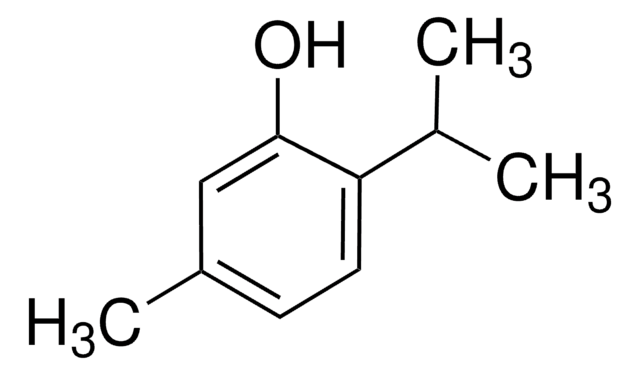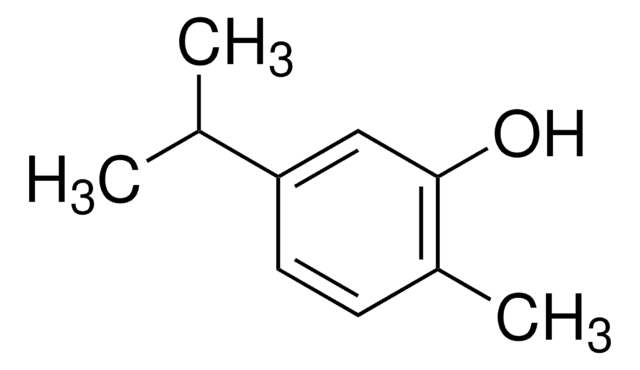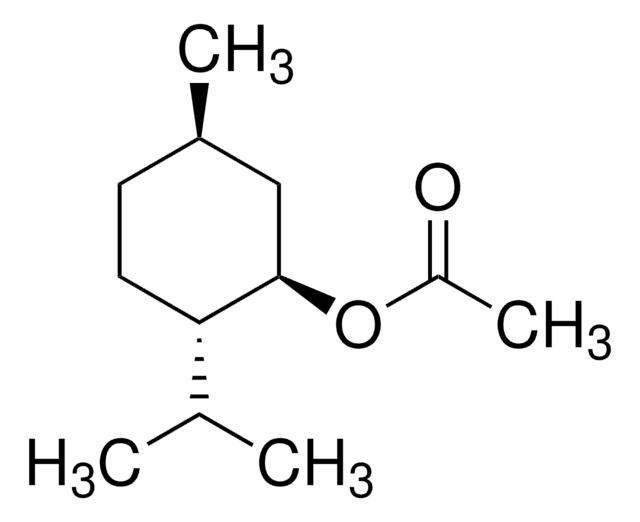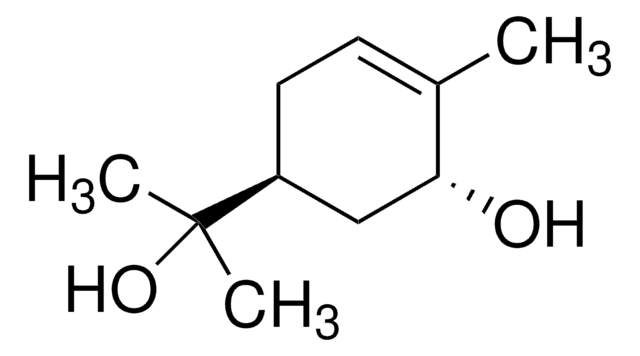16254
Thymol
meets analytical specification of Ph. Eur., BP, NF, 99-101%
Synonym(s):
2-Isopropyl-5-methylphenol, 5-Methyl-2-(1-methylethyl)phenol, 5-Methyl-2-isopropylphenol, IPMP
About This Item
Recommended Products
vapor pressure
1 mmHg ( 64 °C)
Quality Level
assay
99-101%
form
solid
quality
meets analytical specification of Ph. Eur., BP, NF
impurities
acidic reac. impurities, complies
organic volatile impurities, complies (GC)
related subst., complies (GC)
residual solvents, complies
≤0.05% non-volatile matter
bp
232 °C (lit.)
mp
48-51 °C (lit.)
48-51 °C
density
0.965 g/mL at 25 °C (lit.)
suitability
complies for appearance of solution
SMILES string
CC(C)c1ccc(C)cc1O
InChI
1S/C10H14O/c1-7(2)9-5-4-8(3)6-10(9)11/h4-7,11H,1-3H3
InChI key
MGSRCZKZVOBKFT-UHFFFAOYSA-N
Looking for similar products? Visit Product Comparison Guide
Application
- the effect of thymol on the viability of Bacillus cereus.
- its effect on growth and production of citrinin from Penicillium citrinum.
- the effect of thymol on insect and human γ-aminobutyric acid (GABA) receptors.
Biochem/physiol Actions
Disclaimer
signalword
Danger
hcodes
Hazard Classifications
Acute Tox. 4 Oral - Aquatic Chronic 2 - Eye Dam. 1 - Skin Corr. 1B
Storage Class
8A - Combustible corrosive hazardous materials
wgk_germany
WGK 2
flash_point_f
240.8 °F - closed cup
flash_point_c
116 °C - closed cup
ppe
dust mask type N95 (US), Eyeshields, Faceshields, Gloves, type P3 (EN 143) respirator cartridges
Choose from one of the most recent versions:
Already Own This Product?
Find documentation for the products that you have recently purchased in the Document Library.
Customers Also Viewed
Bacillus cereus Heat-Treated Vegetative Cells
Our team of scientists has experience in all areas of research including Life Science, Material Science, Chemical Synthesis, Chromatography, Analytical and many others.
Contact Technical Service









